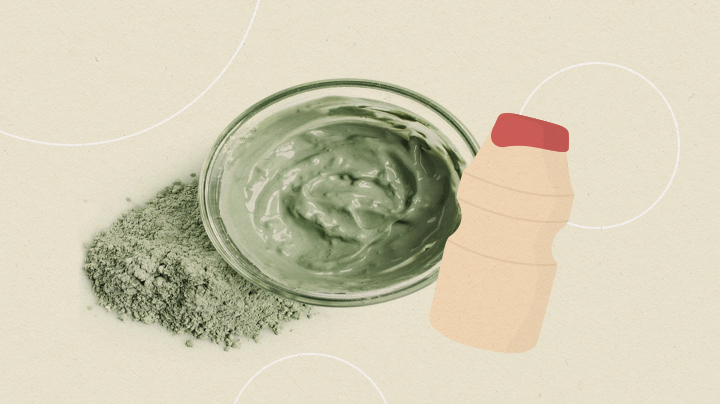Is Using Bar Soap On Your Skin *Actually* Bad for You?
February 28, 2021

If, like a lot of women around the world, you’ve been dealing with acne since puberty, chances are you’re already familiar with the most common anti-acne active ingredients like salicylic acid and tea tree oil. But as dermatological science advances, more and more substances are being discovered to be part of the fight against the dreaded acne.
Here are some of the newest—and perhaps lesser-known—additions to the list of acne-fighting ingredients that you need to look for when you buy your new facial wash, toner, and even serums.
Probiotics and Prebiotics are naturally occurring substances that keep our bodies (specifically our guts) healthy. And apparently, studies have shown that our gut health is connected with our skin health.
According to an Allure article featuring Dr. Whitney Bowe, a board-certified dermatologist and author from New York City, she explains, “When your skin microbiome is off-balance, meaning that the healthy balance of good bacteria on your skin is not intact, this can compromise your skin’s natural barrier. This leads to inflammation, which, in turn, results in chronic skin conditions like acne, eczema, rosacea, and psoriasis.” For acne, a healthy microbial balance on the skin will help prevent inflammation and maintain a healthy skin barrier against harmful bacteria, so it’s best to use products enhanced with pro/prebiotics. Even Dr. Vicki Belo and Dr. Hayden Kho include probiotics in their daily skin routine.
According to the Mayo Clinic, tretinoin is a substance that’s a derivative of vitamin A and is “used to treat fine wrinkles, dark spots, or rough skin on the face caused by the damaging rays of the sun.” It works by encouraging the body to naturally replace old skin (that may have been damaged by the sun) with newer, healthier skin to give you that radiant glow.
Products like Dermese-A Cream (available at The Belo Shop) come in handy so you can give your skin the tretinoin boost it needs to stay healthy and smooth. It’s a gentle solution to clear up active breakouts and over time it’ll also help your skin regulate its natural oil production.
In a November 2020 article released by Glamour, glycolic acid is “a type of alpha-hydroxy acid (or AHA) that’s derived from sugar cane,” just like lactic acid (from milk) and citric acid (from citrus fruits). These naturally produced acids gentler on the skin, but according to dermatologist Kenneth Howe and skin therapist Alix Shapiro, “Of the AHAs, glycolic is the simplest in structure and the smallest; it has the lowest molecular weight [which means] it’s easy for it to penetrate your skin and be super effective.” Glycolic acid is an exfoliant, which means it helps the skin gently shed off the dead skin cells to reveal a brighter layer.
“Glycolic acid stimulates fibroblasts in the dermis to produce increased amounts of collagen,” says Dr. Howe, which means your skin regains elasticity to lessen fine lines and wrinkles.
Here in the Philippines, your Belo skin experts created a glycolic acid-based facial soap to slough off dead skin cells and dirt, remove and control excess oil, and renew your skin without the visible peeling. The must-buy Belo Prescriptives Glycolic Soap is available in two concentrations: 5% and 10%.
The Belo Shop also carries another glycolic acid-based product to fight off acne and dull complection. It’s the Fillmed Glycopeel Mask, which contains 15% glycolic acid to restore tone and radiance to reveal younger-looking skin for an instant glow. It’s even recommended for those with sensitive skin.
The experts at WebMD explained that bentonite is a fine powder that’s formed when volcanic ash ages and has been used as a form of remedy for a lot of ailments. It’s also known as Montmorillonite clay and calcium bentonite clay. It’s known to “clean or protect skin, heal skin infections or acne” and even “treat stomach gas and ease diarrhea.” That’s why nowadays you’ll find bentonite clay infused in lots of cosmetic products like shampoos, lotions, facial masks, and even toothpaste and dietary supplements.
Bentonite clay works by attracting particles (like dirt) on your skin due to its “high cation exchange capacity.” The clay (with a negative charge) can attract positively charged ions like those found in magnesium, sodium, and potassium. Bentonite clay also has antibacterial and anti-inflammatory properties, which is one of the main reasons it works well against acne.
According to the experts at Healthline, “the hormones in combination birth control pills can help reduce acne” because the “pills decrease the circulation of androgens, which decreases the production of sebum.” But you have to make sure that the pills you’re taking contain both estrogen and progestin hormones to be effective against acne. (Related: Can Birth Control Pills Really Get Rid of Acne?)
Studies also showed that “most combined birth control pills are equally effective in helping acne breakouts.” In this 2019 study by the Institute for Quality and Efficiency in Health Care in Cologne, Germany, it showed that “the main reason acne develops is because the male sex hormone androgen is made in larger amounts during puberty—in girls too. Inflammatory and non-inflammatory acne can improve in girls and women who use contraceptive pills as birth control. The pills that help against acne have the female sex hormones estrogen and progestin in them… The frequency and severity of side effects are influenced by the dose of hormones in the birth control pills. But possible side effects might still play an important role when deciding which pill to use. So it’s good to know whether certain pills reduce acne more effectively than others and what side effects they have.”
Want to chat about the anti-acne ingredient that’s best for you? Click here to book a consultation, or call 8819-BELO (2356) today!